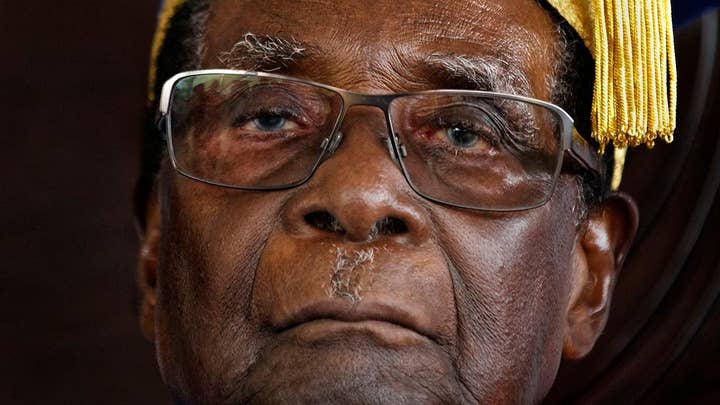US lawmakers blast WHO over COVID-19 response
WHO director pressured to testify about China ties; reaction and analysis on 'The Five.'
Get all the latest news on coronavirus and more delivered daily to your inbox. Sign up here.
The head of the World Health Organization (WHO), now under fire for his handling of the coronavirus crisis and the organization’s pro-China stance, is no stranger to controversy. In 2017 he revoked the appointment of Zimbabwean dictator Robert Mugabe as “goodwill ambassador” after considerable public uproar across the globe.
The embattled U.N. agency’s recent handling of the coronavirus pandemic has led to suggestions by President Trump and top Republican lawmakers that the agency could be defunded by the U.S. -- the top financial contributor.
CLICK FOR COMPLETE COVERAGE OF THE CORONAVIRUS OUTBREAK
The agency put out a tweet in January that quoted “preliminary” findings from Chinese authorities that downplayed the seriousness of the virus, claiming researchers had found that it could not be spread person-to-person.
WHO Director Dr. Tedros Adhanom Ghebreyesus has come under fire, in particular, for remarks he made, in which he said that China has been “setting a new standard for outbreak response."
"The speed with which China detected the outbreak, isolated the virus, sequenced the genome and shared it with WHO and the world are very impressive, and beyond words. So is China’s commitment to transparency and to supporting other countries,” he said in January.
He recently responded to the criticism, warning politicians not to “politicize” the crisis.
WHO DIRECTOR HITS BACK AT TRUMP THREAT TO DEFUND AGENCY
“We will have many body bags in front of us if we don’t behave,” he said. “When there are cracks at [the] national level and global level, that is when the virus succeeds."
But it isn’t the first time Tedros has been the center of a global controversy.
In October 2017 he announced that Mugabe had agreed to be a “goodwill ambassador” on non-communicable diseases. Mugabe, then 93, sat alongside him when he made the announcement.
Mugabe ruled Zimbabwe as a tyrant, overseeing bloodshed, land seizures, suppression of political opponents, economic ruin and mass human rights abuses -- for which he was sanctioned by the U.S. -- for nearly 40 years until his ouster by a military coup in 2017. He faced further criticism for going overseas for medical treatment as the economy and health care system in his home country collapsed.
The United States had said at the time that the WHO appointment "clearly contradicts the United Nations ideals of respect for human rights and human dignity."
CLICK HERE TO GET THE FOX NEWS APP
Two dozen organizations -- including the World Heart Federation and Cancer Research U.K. -- released a statement strongly opposing the appointment, saying health officials were "shocked and deeply concerned." The groups said they had raised their concerns with Tedros on the sidelines of the Uruguay conference. But he had carried on with the appointment regardless.
Within days of the announcement, however, Tedros rescinded the appointment.
“I have listened carefully to all who have expressed their concerns, and heard the different issues that they have raised. I have also consulted with the Government of Zimbabwe and we have concluded that this decision is in the best interests of the World Health Organization,” he said in a statement.
The Associated Press contributed to this report.














































